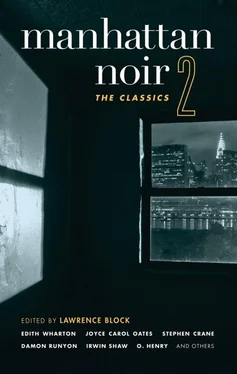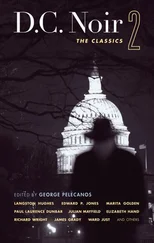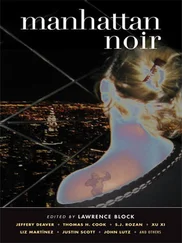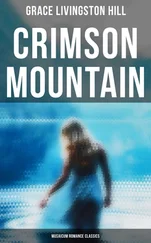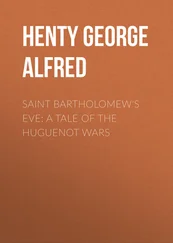Manhattan Noir 2: The Classics
Introduction
It’s been noir around here for ages

M anhattan Noir 2 . How did that happen?
Almost inevitably, it seems to me. Several years ago, Tim McLoughlin edited and Akashic Books published Brooklyn Noir . The book earned a warm reception from critics and readers, and spawned a series for the publisher that is rapidly taking over the world. Early on, I had the opportunity to turn the noir spotlight on my part of the world, the island of Manhattan. Because I had the good fortune to recruit some wonderful writers who sat down and wrote some wonderful stories, Manhattan Noir drew strong reviews and sold (and continues to sell) a gratifying number of copies.
Early on, Akashic expanded the franchise with Brooklyn Noir 2: The Classics, consisting of previously published stories. (I could hardly be unaware of the book, as Tim McLoughlin was gracious enough to reprint a story of mine, “By the Dawn’s Early Light.”) And this sequel, too, was very well received.
While I was editing Manhattan Noir, it struck me that Manhattan was a natural setting for noir material, not least because it had served that function ever since Peter Minuit’s celebrated $24 land grab. I thought of all the writers who’d found a home in Manhattan, and of the dark stories they’d set here, and one day I e-mailed Johnny Temple at Akashic to propose the very book you now hold in your hand. Johnny, it turned out, had already noted in his calendar: Q Block re: Manhattan Noir sequel. Great minds work alike, as you’ve no doubt been advised, and so do mine and Johnny’s.
You would think compiling a reprint anthology would be a far simpler matter than putting together a book of original stories. I certainly thought so, or I might not have rushed to embrace the project. Curiously, it was the other way around.
For the first Manhattan Noir, all I had to do was persuade some of the best writers in the country to produce new dark stories set in Manhattan, and to do so for a fee that fell somewhere between honorarium and pittance. They turned in magnificent work, and I turned in the fruits of their labors, and that was pretty much it. Nice work if you can get it.
But this time around I had to find the stories, and that’s not as easy as it sounds. I knew that I wanted to include O. Henry — but which O. Henry story? I did not want to resort to the anthologist’s ploy of picking stories from other people’s anthologies — this, of course, is one reason everybody knows “The Gift of the Magi,” while so many equally delightful stories remain unknown to the general reader. So what I had to do was read all of O. Henry’s New York stories, and that was effortful and time-consuming but, I must admit, a very pleasurable way to get through the days. And then I had to narrow the field, until I’d selected a single story.
I’ve always had a problem with introductions to collections. If the material’s good, what does it need with an anthologist’s prefatory remarks? And if it’s not good, who needs it?
Still, people who read anthologies seem to expect some concrete evidence of the editor’s involvement in his material, even as those who publish them want to see proof that the anthologist has expended sufficient effort to get words on paper. I won’t say much about the stories, they don’t require it, but I will say a word or two about the short story as a literary form, and its virtual disappearance in our time.
It should surprise no one with a feeling for noir that it all comes down to money.
Consider this: In 1902, William Sydney Porter, whom you and the rest of the world know as O. Henry, moved to New York after having served a prison sentence in Ohio. (He’d been convicted of embezzling $854.08 from a bank in Austin, Texas.) Within a year he had been contracted to write a weekly short story for a newspaper, the New York World. For each story he was to receive $100.
This was at a time when a dollar a day was considered a satisfactory wage for a workingman, and when you could support a family quite acceptably on $20 a week. O. Henry published his first short story collection in 1904, and his tenth in 1910. He never wrote a novel. He never had to.
Throughout the 1930s and ’40s, a majority of American writers made their living turning out short fiction for magazines. The upper crust wrote for the slicks, the lower echelon for the pulps, and in both tiers it was possible to make a decent living.
Then the world changed, and the publishing world with it. After the Second World War, inexpensive reprint fiction in the form of mass-market paperbacks killed off the pulp magazines almost overnight. Television finished the job and essentially took the slick magazines out of the fiction business. Few magazines published much in the way of short fiction, and those that did were able to pay only small sums for it.
And writers stopped producing short fiction.
Not entirely, to be sure. Samuel Johnson wasn’t far off when he said that no one but a blockhead writes but for money, though the fact remains that virtually all writers are driven by more than the hope of financial reward. A poet, e.e. cummings once explained, is someone obsessed with the process of making things — and so is a writer of fiction. One may indeed make it in the hope of being well compensated for its manufacture, but one nevertheless makes it too for the sheer satisfaction of the task itself. Witness the many very fine stories being written today, rarely for more than an honorarium or a pittance, and often for magazines that pay the author in contributor’s copies.
Still, money makes the mare run, or keeps her stalled in her traces. A surprising proportion of today’s leading commercial writers have written no short fiction whatsoever, and few of them have written enough to be particularly good at it. They’re not to be blamed, nor can one hold the publishing industry to account. If readers cared more about short fiction, more short fiction would be written.
And is the same thing even now happening to the novel? Are video games and hi-def cable and the World Wide Web doing to it what paperback novels and broadcast TV (Three networks! Small screens! Black-and-white pictures!) did to the short story?
But we don’t really want to get into that, do we?
Before I could select a story for this volume, it had to meet two requirements. It had to be noir, and it had to be set in Manhattan.
The boundaries of noir, as we’ll see, are hard to delineate. Those of Manhattan, on the other hand, are not. It’s an island, and the waters that surround it make it pretty clear where it ends.
But two of my choices are rather less obvious in their Manhattan settings.
Evan Hunter knew Manhattan intimately, and set a large portion of his work here. His Ed McBain 87th Precinct novels are very clearly set in Manhattan, although for fictional purposes he tilts the borough ninety degrees and calls it Isola . (That’s Italian for island , in case you were wondering.)
Hunter wrote a great deal of short fiction, all of it good and much of it superb. Many of the early stories were set in unspecified locales, and while he may well have had Manhattan in mind, there’s no textual evidence to show it. The Matt Cordell stories, with there Bowery-bum private-eye hero, have specific Manhattan settings, but I opted instead for “The Last Spin,” because I simply couldn’t resist it; it’s been a favorite story of mine ever since I read it fifty years ago.
But you have to read closely to determine that it takes place in Manhattan. The two characters, champions of warring teenage gangs, never get out of a featureless room. Still, the one called Dave makes it clear where they are. “My people come down from the Bronx,” he says. When you come down from the Bronx, you inevitably land i Manhattan. Case closed.
Читать дальше
